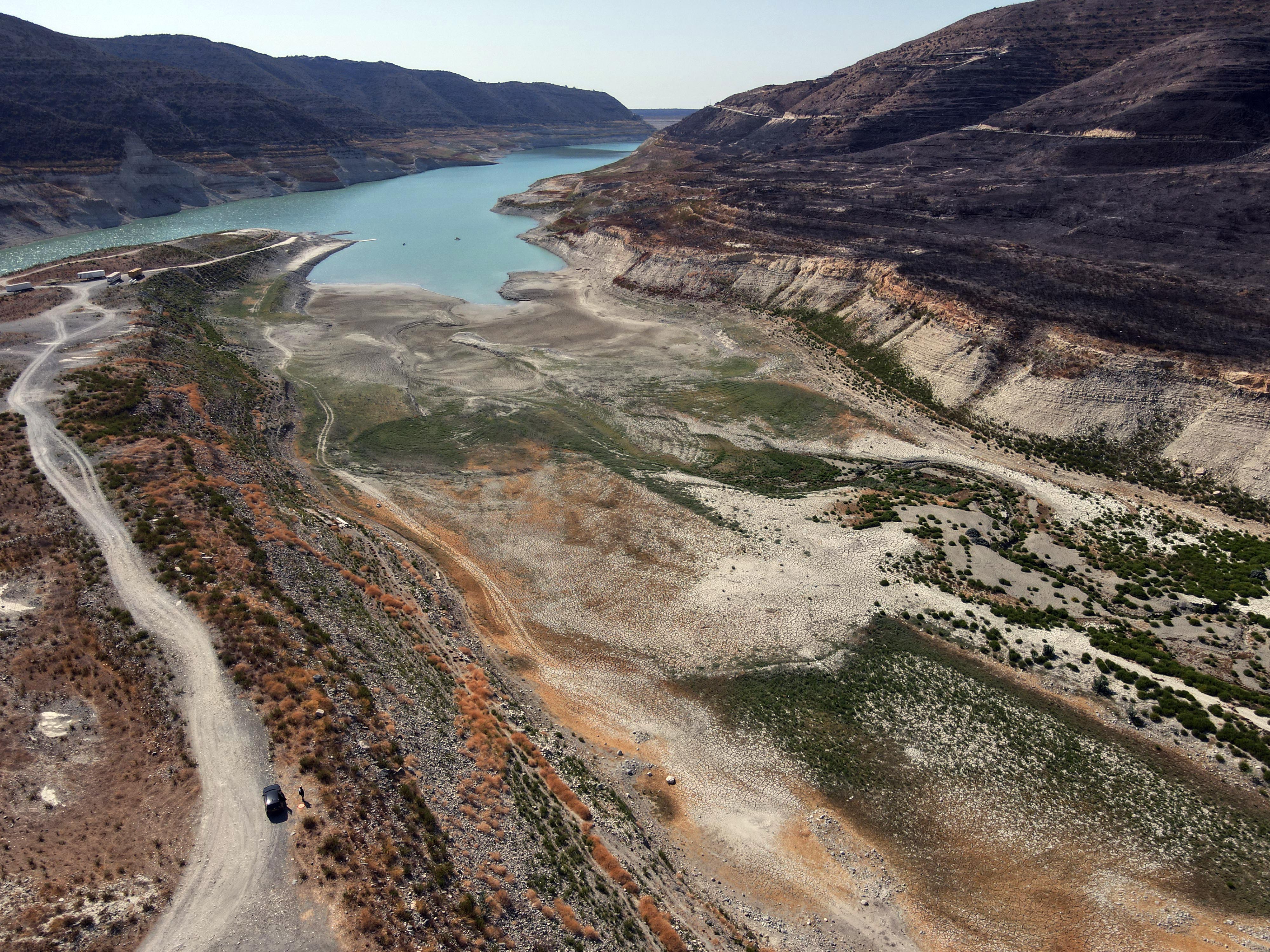Many dams in Cyprus are “old and in need of immediate reassessment and maintenance”, according to a report on the state of the management of the island’s water resources released by the audit office on Tuesday.
A “comprehensive management system for dam safety is not in place”, and that maps outlining areas at risk of floods in the event of floods and maintenance manuals for the dams have not been prepared, the audit office said.
It added there are a total of 104 “large dams” in Cyprus, most of which have “exceeded 50 years of useful life”, and while it stressed that the “probability of failure is low”, the impact is “high” in the event of a dam failing.
As such, it called on the water development department to “prepare dam failure inundation maps for all large dams” in Cyprus, and to also prepare a “cause and impact report for the Mavrokolympos dam”, where the reservoir was entirely drained in January to fix a corroded vent.
Later on Tuesday the WDD said it was proceeding to implement a comprehensive strategic plan, which had been adopted by the cabinet with a view to solving the water problem once and for all.
The WDD said it would give its full attention to the study, adding that it welcomed “constructive criticism”, which it considered “a valuable instrument for continuous development and strengthening transparency”.
“The report highlights the big and long-standing challenges faced by our country, such as lack of water, climate change, the need to modernise infrastructure and the protection of subterranean water,” it said.
The audit report also wrote about the installation of desalination plants across the island, highlighting the potential risks of pollution they bring.
“The potential contamination of the marine environment by desalination plants is a serious issue,” it said, before making reference to a “negative impact on seabed vegetation … due to the high flow of brine and the lack of diffusers” near the discharge pipelines of the desalination plants in Larnaca and Dhekelia.
At the same time, it said, “brown material and anthracite were detected from the filters of the [desalination plants]”.
As such, it called on the WDD to “assess the impacts of brine discharge into the sea for all desalination units at regular intervals” and to “examine ways to utilise brine so as to reduce the environmental footprint and enhance sustainability”.
It also warned that long term use of desalinated water may cause copper water pipes to corrode over time, with this impacting household features such as solar water heaters.
This is an issue, it said, “especially when the water remains stagnant”.
On this matter, it referenced a study carried out by the Cyprus University of Technology (Tepak) in 2020, which found that water produced at the desalination plant in Dhekelia had a “high corrosive tendency”, while water produced at the plant in Larnaca is “less corrosive”.
The audit department also raised concerns regarding the “significant cost of desalinated water”, saying, “it was requested that we be informed whether the impact” of the government’s decision to add more desalination units to cover the island’s water supply needs “on the price of water which will be imposed on consumers has been calculated”.
“Water is a basic good which must be offered at an affordable price to all,” it added.
Additionally, the report made reference to “water losses” – water which is supplied but not metred and therefore not paid for or accounted for.
It said that in the southern conveyer system alone, 15 per cent of the total amount of water allocated for irrigation purposes in 2013 was unaccounted for, and that while it had asked the WDD for more up-to-date figures, the department said it “has not carried out any similar calculation since then.
“Consequently, [the audit office] is not in a position to know whether there has been an improvement or not regarding the quantities of unaccounted for water supplied by the southern conveyor system for irrigation purposes,” it said.
On the overall picture, it said the amount of water being supplied but remaining unaccounted for “not only did not improve, but actually increased further”, with 29.35 per cent of Cyprus’ water supply not being metred and not being paid for.
This, it said, means a total of 48.1 million cubic metres of water was effectively “lost” between 2021 and 2023.
It said the main causes of these losses are “the age of the network” and “damage and leakage”.
As such, it called on the water development department to “supervise” management of water by local providers, and for storage tanks to be upgraded.
The WDD said the reduction of losses and the termination of the opportunistic use of desalination were among the main pillars of its planning.
It added that 38 per cent of the total agriculture ministry budget was earmarked for the water supply.







Click here to change your cookie preferences